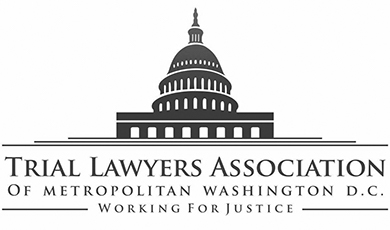What is a Statute of Limitation in a lawsuit?
Posted on Wednesday, January 29th, 2025 at 9:46 pm
Introduction
A statute of limitations is a legal rule that sets a deadline for initiating a lawsuit. These statutes serve as a crucial part of the legal system by ensuring that claims are filed within a reasonable timeframe. They promote fairness, prevent stale claims, and provide certainty for both plaintiffs and defendants. This article will explore the purpose, function, exceptions, and consequences of statutes of limitation, providing a comprehensive understanding of their significance in the legal process.
Purpose of Statutes of Limitation
Statutes of limitation exist to balance the interests of both plaintiffs and defendants in legal disputes. Their primary purposes include:
1. Preserving Evidence – As time passes, evidence can be lost or become unreliable. Documents may be misplaced, and witnesses’ memories can fade, making it difficult to establish facts accurately.
2. Encouraging Diligence – Requiring lawsuits to be filed within a set period motivates individuals and businesses to address legal issues promptly.
3. Providing Legal Certainty – Defendants should not have to live indefinitely under the threat of litigation. Once the time period expires, they can move forward without the fear of old claims resurfacing.
4. Preventing Unjust Litigation – Allowing lawsuits to be filed decades after an event could lead to unfair results, as evidence and testimony may no longer be reliable.
How Statutes of Limitation Work
Statutes of limitation vary depending on the type of claim being filed. Different legal claims have different time limits, often based on the nature of the case and the interests involved. The time limit generally begins when a legally recognized cause of action occurs.
1. Triggering Events
The countdown for a statute of limitation usually starts on one of the following dates:
– Date of Incident – In most cases, the clock begins ticking on the date the alleged wrongful act occurred.
– Date of Discovery – For some claims, the statute begins when the plaintiff discovers or reasonably should have discovered the harm. This is common in cases involving fraud, medical malpractice, or toxic exposure.
– Date of Accrual – Some jurisdictions define the start date as when a plaintiff has a complete and enforceable right to sue.
2. Types of Cases and Their Time Limits
The time limits for filing lawsuits vary based on the nature of the claim. Broad categories include:
– Personal Injury Claims – Typically have shorter limitation periods to ensure timely resolution.
– Contractual Disputes – Can have longer deadlines, particularly for written agreements.
– Criminal Cases – The government may have different statutes of limitation for prosecuting crimes, with severe offenses like murder often having no time limit.
Tolling and Exceptions
While statutes of limitation are generally strict, there are exceptions and circumstances where the clock may be paused, or “tolled.”
1. Tolling the Statute of Limitation
Tolling temporarily stops the countdown, extending the time to file a lawsuit. Common reasons for tolling include:
– Minority or Incapacity – If the plaintiff is a minor or legally incapacitated, the statute may be paused until they reach legal adulthood or regain capacity.
– Fraud or Concealment – If a defendant actively conceals wrongdoing, the limitation period may be tolled until the fraud is discovered.
– Military Service – Laws may provide extensions for plaintiffs serving in active military duty.
– Pending Lawsuit or Class Action – In some cases, related lawsuits or class actions may affect individual claim deadlines.
2. Special Rules for Certain Cases
Some legal areas have unique rules that alter statutes of limitation:
– Medical Malpractice – Many jurisdictions use the discovery rule, allowing claims to be filed after patients learn of their injury.
– Asbestos and Toxic Exposure – Some jurisdictions extend limitations due to the delayed effects of exposure.
– Sexual Assault Claims – Increasingly, laws are being modified to extend deadlines, particularly for child victims.
Consequences of Missing the Deadline
Failing to file within the statute of limitation has significant legal consequences. In most cases:
1. Loss of Right to Sue – Courts typically dismiss lawsuits filed after the deadline, barring plaintiffs from recovering damages.
2. Defendant’s Legal Defense– A defendant can raise an expired statute of limitation as an affirmative defense, leading to immediate dismissal.
3. Settlement Negotiation Impact – Plaintiffs who miss deadlines may lose leverage in settlement discussions, as defendants are under no legal obligation to negotiate.
Waiving or Modifying the Statute of Limitation
In limited circumstances, statutes of limitation may be waived or modified. This can occur when:
– Parties Agree to Extend the Deadline – Some contracts allow parties to set different time limits for filing claims.
– Legislative Changes – Governments may extend or create exceptions, especially for high-profile cases.
– Equitable Considerations – Courts may allow claims past the deadline if strict enforcement would be unfair (though rare).
Practical Tips for Handling Limitation Periods
To avoid issues with statutes of limitation, consider the following best practices:
– Seek Legal Advice Early – Consulting an attorney promptly can help determine the applicable deadlines.
– Keep Accurate Records – Maintain documentation of contracts, incidents, and communications related to potential claims.
– Act Diligently– Do not delay investigating and filing claims, as waiting can weaken your case.
– Monitor Legislative Changes – Laws may change, so staying informed can help preserve your rights.
Conclusion
Statutes of limitation play a vital role in the legal system, ensuring fairness and efficiency in litigation. While they impose strict deadlines, various exceptions and tolling provisions exist to address unique circumstances. Understanding these rules is essential for anyone considering legal action, as missing a deadline can permanently bar a claim. Seeking legal guidance and acting promptly are key to protecting one’s rights and ensuring access to justice.






